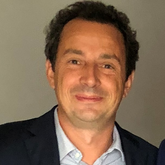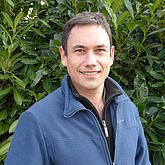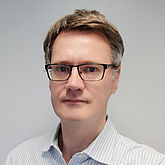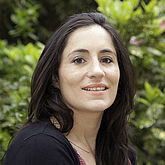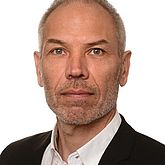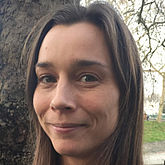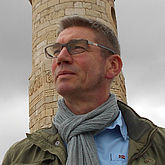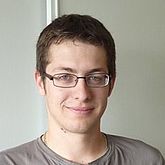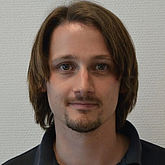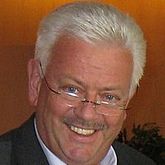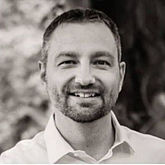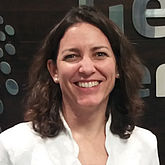M. Matthieu CAMPARGUE - Director, RAGT énergie

Speaks in the following conferences
Salon Bois Energie 2019 Evolution of the ISO standardsM. Jacques BERNARD - In charge of studies on wood, energy, agriculture, environment, Association d'Initiatives Locales pour l'Energie et l'Environnement

Jacques has been working at Aile since 2005. He is in charge to advice Brittany farmers to implement wood chipps boilers within a sustainable trees management on the farm and an optimum integration of the wood uses in the farming system (carbon storage in the soil, biodiversity in the soil and in the air, fertilisers management, animal feeding, etc...). Jacques has participated in the implementation and the follow-up of previous experimental and multi-partnership programs: Wilwater (2005-2007) to test the purification capacity of very short rotation coppices of willow (SRC), SRC + (2016) to develop sustainable chains production of SRC, Combine (2013-2015) testing the grass harvest from roadside maintenance as input into anaerobic digestion plants, Utilbiomas (2017) to study some innovative amendment techniques on soils depleted with local biomas, Bocag'Air (2018-2020) raise farmers' awareness on good practices during the maintenance of trees (burning) and combustion of wood without small particles in the boilers. Jacques tries making sense and clearing complex subjects, popularizing and disseminating of results to professionals (farmers, industry, and community decision-makers) and students. He highlights the opportunity represented by the mutation of agriculture and the energy transition from biomass to contribute in resolving territory issues. This transversal actions plan consist to think in the same time several sectors linked each to another: air and water resource management, climate change adaptation, polinisation, green waste management costs, food products quality, rural development, orientation of abandoned areas, maintenance and improvement of the landscape heritage. Regardless of the scale involved, Jacques does support multi-stakeholder approaches able to tend towards a remunerative circular activity for all stakeholders, particularly in the Re-Direct approach (2017-2019).
Speaks in the following conferences
ReGen Europe 2019 Pyrolysis et Thermolysis - biochar from biomassM. Stéphane COUSIN - Technical Adviser, Comité Interprofessionnel du Bois-Energie (CIBE)

Speaks in the following conferences
Salon Bois Energie 2019 Evolution of the ICPE regulation (orders of 3rd August 2018)M. Philippe HUGERON - President, Club Pyrogazéification

Philippe Hugeron is an engineer of the Ecole Polytechnique and the Ponts et Chaussées. With a double business experience of banker and entrepreneur, he has been supporting innovative companies in the field of new energies and the valorization of biomass and waste for twenty years. He is currently Chief Financial Officer of E.T.I.A. and president of the Pyrogasification Club which represents the sector with the public authorities.
Speaks in the following conferences
ReGen Europe 2019 Pyrogasification : energy recovery from renewable biomass or non-renewable waste streamsMme. Céline LABOUBEE - Project Manager Bioenergies, SOLAGRO
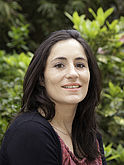
Céline is an agricultural engineer trained in environmental issues. She is an "in the field" worker and knows all about farmers' expectations in terms of fertilization and return to the soil of organic matter, composted or methanised. After 10 years of support in biogas project development (individual and collective projects) as well as on multimaterial processing platforms, she coordinated the CASDAR program "Méthalae", a program that highlighted the positive synergies between methanisation and agroecology.
Speaks in the following conferences
Biogaz Europe 2019 Anaerobic digestion and agroecologyM. Olivier Lepez - President, ETIA

ETIA is a company created in 1989 by Olivier Lepez and Philippe Sajet, engineers and process engineers, specialized in innovation, engineering, development and commercialization of thermal processes for the industry. In the early 2000s the company develops and patent a revolutionary and unique process for the heat treatment of powdered products and pieces consisting of a screw conveyor which is heated directly by the direct passage of a low voltage electric current . The method thus perfectly guarantees the control of the operating conditions of the treatment. First applied to the processing of food products (hygienization, toasting, ...), the company ETIA began in 2009 to develop applications of this principle aiming at the valorization ofthe residual biomasses and the waste in products and fuels with high added value. Starting from a unique technological solution, ETIA offers today a portfolio of innovative processes for effective and efficient solutions to 4 major challenges for society: - Hygienization of food products - The valuation of residual biomasses in biobased materials of interest and in biogas - The recovery of wastewater treatment plant sludge in biochar and synthesis gas - The recovery of used and non-recyclable plastics in electricity and in liquid and gaseous fuel ETIA is also recognized by the public investment bank (BpiFrance) as one of the 3000 most innovative companies in France (BPI EXCELLENCE label every year since 2010). The company is continuing its development thanks to the creation of the company Synthane® whose purpose is the production of synthesis gas (hydrogen and methane) from residual biomass and polymeric waste (plastics, ...).
Speaks in the following conferences
ReGen Europe 2019 Pyrogasification : energy recovery from renewable biomass or non-renewable waste streamsMme. Audrey EL HABTI - S3D Ingenierie

Audrey EL HABTI has an experience of 10 years in project management in the field of agriculture and environment, including 7 in the field of biomass valorization and development of renewable energy in agriculture. Agricultural engineer Agroparitech education, she joined the S3D team and supports the development of biogas projects of various configurations for 5 years. She is an expert for the follow-up of biogas plant in operation, audits, as well as the valorization of the digestate and the agronomic and environmental impact of anaerobic digestion.
Speaks in the following conferences
Biogaz Europe 2019 Biogas-Biomethane : compression to trailer - european experiencesM. Aurélien ROUAULT - Abibois
Speaks in the following conferences
Salon Bois Energie 2019 Wood Energy organisation : expertise in the service of the local wood energy sectorM. Jérôme Bécot - Méthatlantique / Atlantique Industrie

Speaks in the following conferences
Biogaz Europe 2019 Increasing the competitivity of the french biomethane sector : 2030M. Martin HANROT - Sembreizh

Speaks in the following conferences
Biogaz Europe 2019 Biogas-Biomethane : compression to trailer - european experiencesM. Pierre USUREAU - Energy Technician, SDEC ENERGIE

Suite à un DUT "Génie Electrique et Informatique Industrielle" et à une licence professionnelle "Conseiller Technique en Energie Electrique et Renouvelable", j'ai décidé de mettre mes compétences au service des collectivités afin de les aider à diminuer leurs dépenses énergétiques. J'ai intégré l'association du Pays du Bessin au Virois en 2013 comme chargé de mission "Conseiller en Energie Partagé (CEP)". Le territoire comptait 249 communes, sur 13 communautés de communes et 143 000 habitants (ouest du Calvados). Ma mission était de réaliser des bilans énergétiques de bâtiments publics et de les accompagner dans la mise en oeuvre d'actions visant à améliorer le confort des usagers tout en diminuant les consommations d'énergie des bâtiments. En janvier 2017 j'ai été recruté par le Syndicat Départemental d'Energie du Calvados (SDEC Energie) pour poursuivre la mission de CEP sur l'ensemble du département et favoriser le développement d'énergies renouvelables. Cette nouvelle mission me permet d'accompagner les collectivités souhaitant installer des panneaux photovoltaïques ou mettre en place des chaufferies bois énergie afin de favoriser les ressources locales et d'atteindre les objectifs fixés par le Grenelle de l'Environnement.
Speaks in the following conferences
Salon Bois Energie 2019 Mutualising project managment or operation of wood heating plantsDr. Gaël Peng - CTO, TreaTech Sàrl
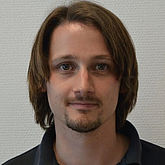
In 2010, G. Peng received a Master's degree in Chemical Engineering from the Swiss Federal Institute of Technology Lausanne (EPFL) in Switzerland. From 2011-2015, he then pursued his PhD studies at the Paul Scherrer Institute in Switzerland (German-speaking Switzerland) working on catalytic hydrothermal gasification of microalgae. During his PhD thesis, he demonstrated the technical feasibility of this innovative technology mainly by developing a sulfur purification unit and by improving the separation of mineral salts as well as the performance of the catalyst. In 2016, he joined TreaTech as a CTO and co-founder. TreaTech is a start-up of the EPFL, which aims at developing and commercializing the hydrothermal gasification technology, especially for the valorization of sewage sludge into biogas and fertilizers.
Speaks in the following conferences
ReGen Europe 2019 Hydrothermal gasification of liquid wastesM. Marc LEFOUR - Development Director, CHO POWER
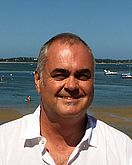
Marc Lefour shows 30 years of experience in the technology and industry international markets. He began his career in 1988 at Philips Consumer Electronics, then in the Schlumberger Group. In 1999, Marc Lefour joined the start-up In-Fusio in its early days, in the mobile internet sector. He contributes greatly to its development to achieve profitability. In 2006, he joined the eco-industry sector at Europlasma as Development Director in the new subsidiary CHO Power, in charge of developing the projects of the new activity of renewable energy production by gasification of waste and biomass using the proprietary CHO Power process Marc Lefour, 53 years old, is French and graduated from Telecommunication engineering school ISEN Lille.
Speaks in the following conferences
ReGen Europe 2019 Pyrogasification : energy recovery from renewable biomass or non-renewable waste streamsMme. Elodie PAYEN - Project manager, Comité Interprofessionnel du Bois-Energie (CIBE)
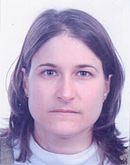
Speaks in the following conferences
Salon Bois Energie 2019 Wood Energy organisation : expertise in the service of the local wood energy sectorM. Anton van 't Slot - Manager Business Development Renewables, TechnipFMC

Anton started his career as Head of the Environmental Department of the City of Arnhem, which at that time was a totally new area for local governments. After five years working there he switched to the local waste company, called ARA, a Public Company owned by seven local municipalities and became the vice General Manager. Working there for 4 years, the company has been sold and Anton switched to a Dutch engineering firm called Grontmij and became responsible for creating emission reductions world wide and the trade of these Certified Emission Reductions (CER's). After three years, the CO2 trade of Grontmij was taken over by Rhodia Energy and Anton continued his job within Rhodia Energy. After 4 working years the price of a CER dropped that considerably that Anton decided to look for new challenges. After a short while he has been asked by TechnipFMC to set up a new business line called Renewable Energy. In this period, the last six years, projects were developed based on plasma treatment of waste and in this way creating hydrogen. TechnipFMC is world market leader in hydrogen. Apart from this job he became co-responsible for the investigation and implementation for new technologies to be adapted by TechnipFMC. One of the activities was to establish the cooperation with BTG Bioliquids B.V., our current exclusive world wide cooperation partner. In this cooperation Technip is responsible for EPC contracting, while BTG Bioliquids is responsible/acts as the technology provider. This way of working is satisfactorily for both partners.
Speaks in the following conferences
ReGen Europe 2019 Pyrolysis and Thermolysis - liquid biofuels and hydrogenM. Sébastien BENOIST - In charge of the environment and energy division, Roche aux Fées Communauté
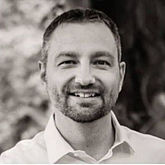
In charge of ecological and energy transition actions of the territory through the climate plan and the Positive Energy Territory project. Responsible for monitoring and supporting renewable energy projects (heat networks, wood energy, biogas, wind project, hydrogen ...)
Speaks in the following conferences
Biogaz Europe 2019 Finance PerspectivesMme. Lucía Roca - Chief Operating Officer, Gestamp Biomass
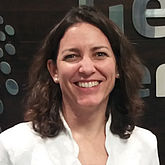
Forestry Engineer with a dedication to renewable energy for more than 15 years now. Expert on Biomass subject she has been involved in the development of several biomass projects in different countries. Currently as COO in Gestamp Biomass she is in charge of coordinating the different areas: Assets operation, O&M, Project Development, Boiler Construction. The group has 4 biomass boilers under construction (2 in Portugal of 15 MWe each one and 2 in Spain of 40 MWe each). She has a biography linked to Rennes as it is here that Iberdrola Energies Renouvelables bought and then developed their first French wind farms and she was at that moment in charge of their acquisition and opening of the first international office here in Rennes.
